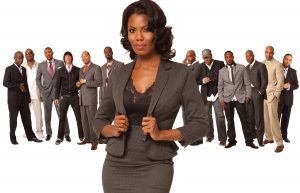By Tochi Eze
When I heard that Ethiopia had appointed their first female President, I rushed to the internet, scurrying through my newsfeed in search of what she had achieved and her previous political experience. As you can imagine, my enthusiasm was not really about Ethiopia, but the fact that another woman has taken her seat of power, that the man-crowded world of politics had given the stage to a woman, and then, that it was happening right here in Africa, a continent so popular for its long and convoluted relationship with patriarchy.
The Irony of it
Africa has had a rich history of women who have occupied the centre stage with confidence and purpose. These women have been at the back scene, playing strategic roles in the social engineering of their respective societies. Whether you think of Amina, the warrior queen of Zaria or Yaa Asantewa, the great Ashanti queen. Of course, there was Moremi, the Yoruba princess. Her sense of duty and leadership pushed her to surrender to the enemy camp. And there were also the Aba women who revolted against the colonial masters against poor business policies and taxes.
These matriarchs, even though they were never called President or Governor, still shaped the affairs of their time. They had a voice, they had an agenda, and they had results.
Why not now?
Sitting with my friends the other day, our conversation tilted towards politics, a rare but welcome occurrence. From our quickly heated and tangled debate, I realised, that the world, particularly Africans, still grapple with the idea of gender politics. And I wonder how deliberately we are interrogating these cultural norms that have shaped our social behaviour.
I admit that building a nation is not as easy or blind as chanting girl power and voting for the first woman who shows interest. However, it must begin with paying the right kind of attention, giving an equal share of scrutiny to every political candidate and reminding ourselves that women have long been carrying the mantle of leadership.
My justifications
We need to begin to seriously consider the participation of women in politics because more female participation reflects a strengthened democracy. After all, the very notion of democracy is to galvanise the popular opinion of the majority of the people. What then is the point if the majority is dominated by a single gender?
We need women because as much as we love Nigeria, the country is quite a mess. And men have mostly dominated the political conversations. It may be time to tilt the scale a little. (I say this with great love and respect for men)
Finally, let’s not forget that history shows that women are quite capable. Whether through their strategic contribution in the wake of the Rwandan genocide or Sierra Leonean crisis. Women showed up and lived up to their cause and purpose and made a difference.

